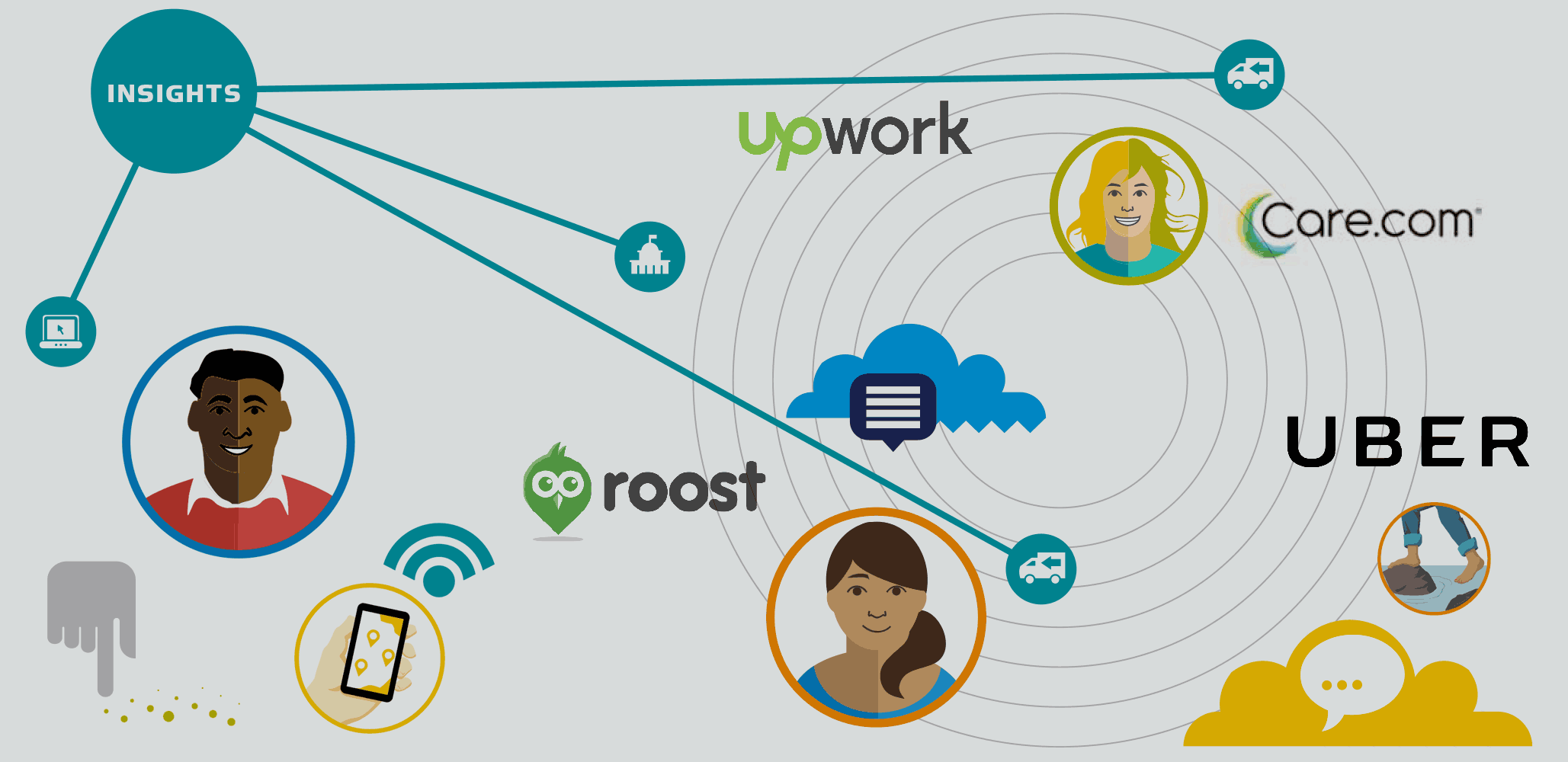IFTF uncovers seven new worker archetypes of the on-demand economy

Update: Read also this Fortune Magazine review of the study (as reported by BoingBoing).
Institute for the Future, the Caiifornia-based independent, nonprofit strategic research group, releases a new report aimed at gaining a deeper understanding of a new breed of worker in order to create a system that ensures a workable future for all; after studying the future of work for 50 years, says it’s never seen such a dramatic transformation on the horizon.
Press release, Sept. 30, 2016, Palo Alto, CA — A new report out today from the Institute for the Future defines seven archetypes of the on-demand economy and outlines the motivations of the workers in it, in order to give policymakers, platform designers and workers the information they need to shape an equitable future for work.
The Institute, which has been studying the future of work for 50 years, says we’re on the cusp of a dramatic transformation in the workforce. Its new report, Voices of Workable Futures: People Transforming Work in the Platform Economy, provides a baseline understanding of who the workers of this new economy are.
“We can’t make good decisions if we don’t understand who’s in this new workforce and what motivates them. Gaining a deep understanding of this workforce is the first step toward devising the policy, regulatory and technological solutions we need to create a workable future for all,†said Marina Gorbis, executive director of Institute for the Future. “This report is that first step.â€
The study used in-depth ethnographic interviews with 31 workers across a range of ages and socio-economic backgrounds in cities across the country to determine patterns of worker experiences. Those archetypes include:
- The Part-Time Pragmatist, who doesn’t see online platforms versus conventional employment as a fork-in-the-road decision but adds platform opportunities to traditional work.
- The Savvy Consultant, previous white-collar workers who see growth and opportunity, as well as freedom, in the on-demand economy.
- The Freelancer who wants the luxury of choice in weaving together assignments based on personal values.
- The Full-Time Gig Worker who maximizes efficiency by focusing on a single app—the closest thing to employees in the on-demand world.
- The Re-Entry Worker who uses platform work as a tool of resilience to ease them back into earning income while taking care of their health and well-being.
- The Entrepreneur who looks to incorporate a platform into their own entrepreneurial vision and desire for growth.
- The Hustler who doesn’t fit the mold of a full-time job—whether it’s due to a criminal past, a career aspiration or temperament. The Hustler searches for alternative income streams that fit into a flexible, unscheduled lifestyle.
The report also delves into the motivations of these workers—which often times are not just monetary, but include flexibility and convenience as top motivators—and shows that on-demand workers do not fit neatly into the current categories that have defined the traditional workforce landscape for decades.
Lastly, the report outlines eight new building blocks of the on-demand economy, which range from how we acquire knowledge and skills to how our worth is defined and how our physical location or mobility impacts our ability to obtain work, among others.
“We need to be having the right conversations to determine how to ensure this new category of workers prosper, without stifling the amazing innovation that is creating these new ways to work,†Gorbis said. “Platform designers, policymakers and workers themselves all need to be at the table finding policy and regulatory solutions now, because the future will literally pass us by if we don’t.â€



